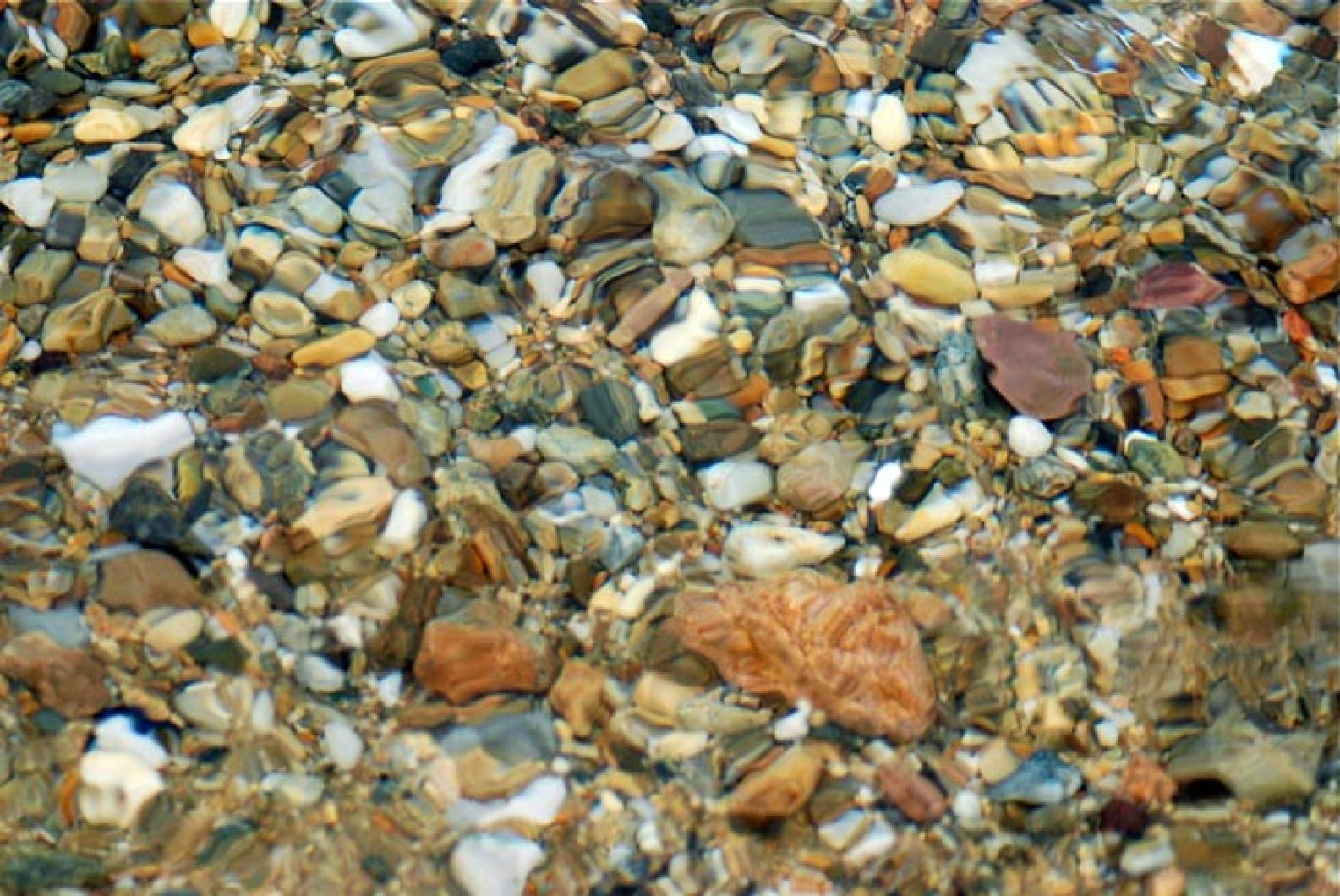When you’re a kid and are near water and see a stone, you skip it. Maybe you are lucky one day and you find a slate mountain. To a kid it seems to be a mountain, but it is a pretty big hill — or maybe it’s just a piece of a hill. You are on a path in a woods, it’s hilly terrain with lots of rocks and boulders jutting out into your way. The path winds around, slippery in places, for there are some tiny waterfalls here and there, and they make everything damp. You are 10, maybe 11 years old.
Since you already know about skipping stones, no one taught you, you just know, you can tell a good thing when you see it. Slate! Sliding and crackling underfoot, and falling down from the hillside you are walking on, are slabs of slate; you look up and there is a wall of it. Enough slate to make every blackboard in every school room in every town in Kentucky back a few years. There are little pieces of it all over the path, they snap and shift when you walk over them. You stop and dig out a chunk of it from the hillside, smooth and gray, and pry the sheets apart. They are sharp-edged, elegant, untouched. You don’t know whether to scratch your name on it, or throw it. Or both. You put some little pieces in your pocket, and a big chunk in the brown paper bag your lunch is in.
You have walked along the lakeside looking for flat stones; there aren’t many, mostly just round or bumpy ones, but maybe not totally useless, and might skip a little, so you give it a try. But slate is the queen of skippers, and now you have a bag full for your next waterside walk. This was no gender game, boys and girls alike were all good at it — a smooth, horizontal swish . . . did you see that one! Seven, eight, 10! Across the lake they flew, making their graceful paths of circles.
Now, many years later we walk along a little beach in Edgartown, kids and grandkids, and us . . . the ocean on one side of us, a small, quiet pond on the other. We crunch over the shells and rocks all along the way; it sounds like slate. We’re looking for skippers, but will settle for some beach glass to just put in our pocket. Pretty soon you see Ains bend over and pick up a couple of stones. She zings one in. Too round, too heavy, too something; two clunky splashes is all she gets. Further down the line Ted does a respectable four splashes. Slate this is not. Hey, four is good on this beach. Ocean stones are hard to skip.
But shells we have; Greg’s pockets are already full. We always find something, even a bit of beach glass if we’re lucky; it’s always brown or green anymore. Maybe a lucent white. Joe turns around and holds out his hand. “Is this what you guys are looking for?” Blue beach glass; not new, not sharp, not plastic, not small. Just smooth and blue. “Joe,” I say, exasperated with his beginner’s luck, “did you buy this in town or something?” He drops it in my hand and walks off. “I’ll find you some more,” he says with a grin.
Greg throws everything he picks up, and tries to hit a stone in midair with another stone. We walk on, finding good stuff; Jen has a gull’s skull and beak in her hand, but gets a better look and throws it down with a shudder. Ted finds one big flat rock to put in the garden. I’ve given up trying to skip anything and just heave big rocks into the water because I like the plunking sound they make.
It’s what you do with a rock, throw it. And it’s what you do with slate, skip it.
Gazette contributor Jeanne Hewett is a fabric artist and freelance writer who lives in Edgartown.




Comments
Comment policy »